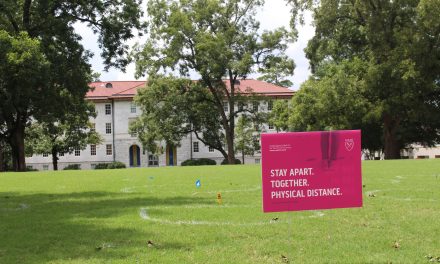Emory and 18 other colleges and universities filed an amicus curiae brief in the U.S. Supreme Court on Oct. 4 in support of the Deferred Action for Childhood Arrivals (DACA) policy. An amicus curiae brief is a supplementary document that provides insight and expertise for the court when making a ruling. Emory had filed a similar amicus brief along with 19 other universities in 2017 while the case was seen in the U.S. District Court for the Northern District of California.
All 19 educational institutions filing the brief have admitted individuals with DACA status, and argue that DACA enables undocumented students to receive the educations that they deserve. Other peer institutions signed the brief including Duke University, Georgetown University, Northwestern University, Vanderbilt University and eight of the nine Ivy League schools.
“[B]y virtue of DACA … these students have been able for the first time to access educational and life opportunities on nearly equal terms with their peers,” the brief states.
The group also expressed their concerns that their missions of educating “the most gifted and motivated young people in the world” would be jeopardized if undocumented students were denied the deferred action that DACA provides.
The brief cites a section of the Emory College Study Abroad Vision Statement, which notes the importance of study abroad experiences in preparing students for “future scholarship and careers.” With DACA status, participating students receive the opportunity to study abroad, as well as find off-campus internships and on-campus research positions.
DACA was established in 2012 through an executive order by former President Barack Obama. Run by the U.S. Department of Homeland Security, the program aimed to allow children who entered the U.S. under the age of 16 “to request consideration of deferred action for a period of two years, subject to renewal, and eligibility for work authorization.”
The Emory Campus Life website provides a list of resources for undocumented students who both have and don’t have DACA status. Emory University Assistant Vice President of Reputation Management Laura Diamond wrote in an Oct. 15 email statement that the University is welcoming of all students, “regardless of race, gender, religion, ethnicity, sexual orientation or immigration status.”
“We know exceptional students are part of every community, and we believe our community benefits from this diversity,” the statement says.
Following President Donald J. Trump’s 2017 decision to phase DACA out, several lawsuits challenged the action’s constitutionality. The dispute culminated in an ongoing case that reached the Supreme Court in June 2019. U.S. Citizenship and Immigration Services is not granting deferred action status to new recipients while the case awaits decision but will continue to renew existing grants.
The Supreme Court will hear oral arguments in November and is expected to make a ruling on the case by June 2020.
Christopher Labaza (22C) is from Cary, North Carolina, majoring in creative writing. Outside of the Wheel, he writes satire for the Emory Spoke, volunteers at the local animal shelter with Pawsitive Outreach and performs in the Emory Wind Ensemble. Some of his favorite things include reading, taking walks and doing anything creative.





